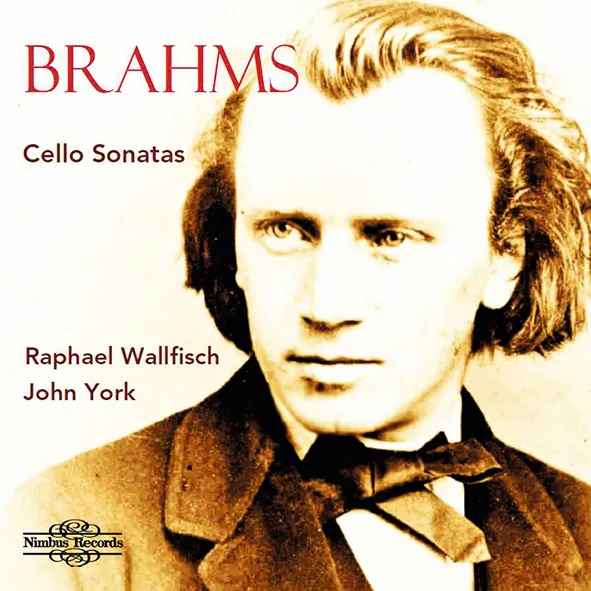
Brahms Cello Sonatas Nos 1 & 2; Sonatensatz (Scherzo) Raphael Wallfisch (cello), John York (piano) Nimbus Records NI 5972 59:53 mins
Raphael Wallfisch recorded the two Brahms Cello Sonatas for Chandos with his late father Peter Wallfisch way back in the late 1980s. After so many years, it seems appropriate that he should return to this standard repertoire with his long-standing duo partner, John York. The difference this time round is that the Cello Sonatas form part of a larger recording project whose second disc, to be released later this year, features transcriptions for cello and piano of the two clarinet sonatas and the G major Violin Sonata. In fact, we get a brief taster here of Wallfisch’s resourceful cello adaptations in the form of the early Sonatensatz, originally composed for violin and piano. Anybody coming to this music for the first time would hardly believe that Brahms did not conceive the work with the cello in mind, particularly in this performance which has such verve, energy and dynamism.
The cello sonatas also sound impressive. In the F major, Wallfisch and York bring tremendous drive to the heroic opening movement, and refreshingly offer a more weighty approach to the Finale than many other interpreters. Both players are scrupulous in observing Brahms’s marking of Allegro non troppo in the lengthy opening movement of the E minor, thereby never making the music sound lugubrious. Nevertheless, there are occasions where a bit more give and take in tempo fluctuation could have brought a greater variety of colour, especially in modulation to unexpected keys. The rest, however, works well; graceful and unhurried in the Minuet and sufficiently held back in the Finale to enable all the intricate contrapuntal interplay to be heard.
Erik Levi